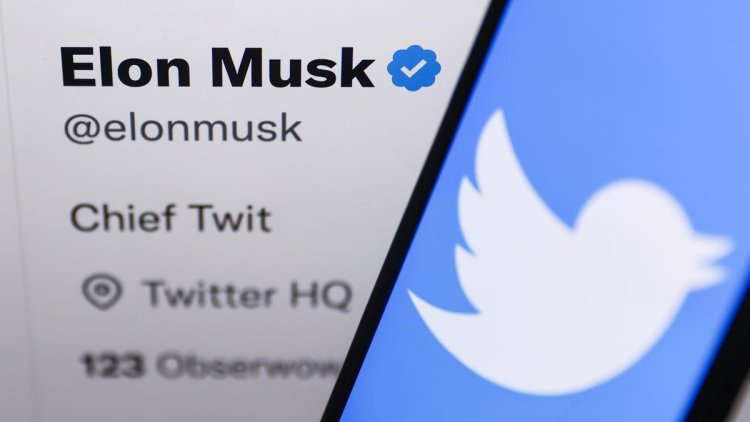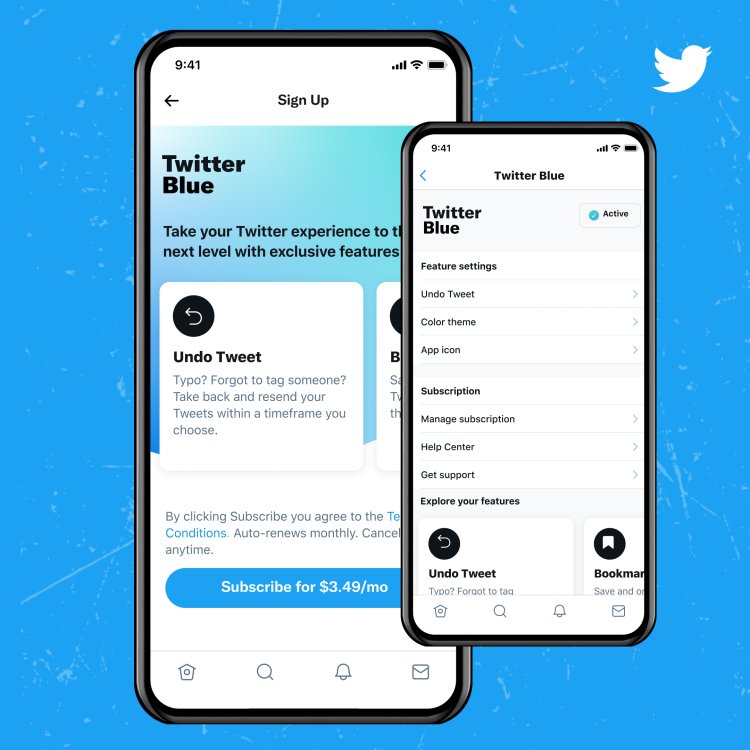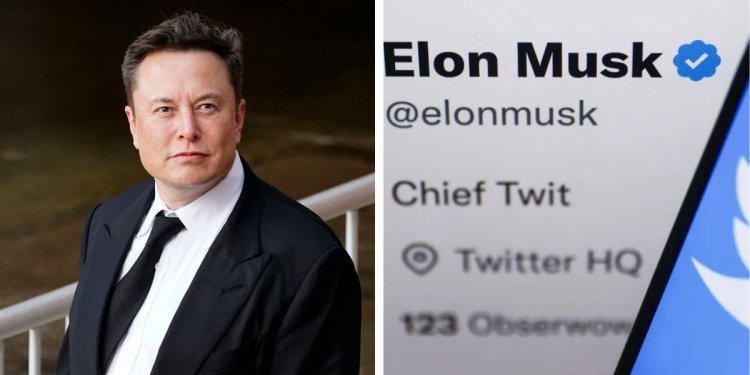How Several Kenyans With Twitter Blue Ticks Could Spread Fake News
Twitter Blue is an opt-in, paid subscription that adds a blue checkmark to your account and offers early access to select features, like Edit Tweet.

On Thursday, March 23, Twitter boss Elon Musk launched the highly-anticipated Twitter Blue feature worldwide which now allows users to showcase the coveted blue checkmark in exchange for paying for it every month.
Twitter Blue is an opt-in, paid subscription that adds a blue checkmark to your account and offers early access to select features, like Edit Tweet.
However, all Twitter Blue features will be available immediately except for the blue checkmark, which will appear on eligible profiles after a review to ensure subscribed accounts meet all eligibility criteria.
"In addition to the blue checkmark, Twitter Blue features offer subscribers a way to enhance and customize their Twitter experience. These powerful controls are designed to help personalize Twitter and give early access to our newest features before they’re available to everyone," the microblogging social media platform stated in part.

A screenshot of the new Twitter Blue feature. /TWITTER
With this, Kenyan users have been applying to possess the checkmark as well as the special features that come with it, aimed at improving one's Twitter experience. All one needs to do is pay Ksh1,419 every month or Ksh14,830 every year.
However, a section of Kenyans opined that the presence of an increased number of blue ticks on user profiles could increase misinformation spread across the platform, given that the verified status was only reserved for journalists, celebrities and politicians among others.
"So what’s the point if everyone becomes verified on Twitter? How do we differentiate misinformation being passed by Twitter accounts that just paid for the blue checkmark from the truth?" Sylvia Ndunge posed.
Viral Tea examined why Ndunge's post hinted at the dangers of the new changes regarding which user gets the coveted tick.
For a long time, it was seen that any user who possesses a blue checkmark on their account meant that whatever post the individual made was authentic, or the person is authentic, regardless of whether or not the information they share is true.
However, the huge presence of blue ticks is likely to bring forth a new age of misinformation and disinformation since "Verified Brayo (Brian) tweeted that so it must be true of what he is saying" at a time whereby anyone with access to a phone can be a citizen journalist at will.
Blue ticks are thus vulnerable to share anything out of the blue without counterchecking with official sources whether or not it's authentic, at times taking advantage of highly-discussed events such as the ongoing Azimio la Umoja demonstrations to spread fake news.
"Some users don't have the blue tick yet they are more credible than those who possess it. The key, therefore, is not just the verified status but the level of trust people have in your content," this writer opines.
To ascertain this, we revisited a report by the Mozilla Foundation released in 2021 which uncovered the brazen world of Kenyans using verified Twitter accounts to spread disinformation across the country’s online space, whereby high-profile accounts are being hired out to coordinate attacks on journalists, judges, and other members of civil society, with Twitter itself accused of doing very little to stop it.
The report released on September 2, 2021, revealed that influencers operating under the guise of verified accounts were paid roughly between Ksh1,000 and Ksh1,500 ($10-$15) to participate in three disinformation campaigns a day. The payment is remitted to the influencers through mobile money platforms.
The agencies also hired the verified tweeps to raid Twitter’s trending algorithms to further amplify their campaigns containing unfounded assertions, spiteful content, and propaganda material under selected hashtags.
“The platform allows malicious actors to run sock puppet accounts, create malicious content, generate fake engagement, and ultimately hijack Twitter’s very own trending algorithm. As a result, millions of Kenyans are being manipulated on Twitter,” read the report in part.
The report also revealed that the verified accounts were being used like puppets on a string to manipulate the opinions of Kenyans by propagating disinformation amongst the public.
“This research provides a window into the booming and shadowy industry of Twitter influencers for political hire in Kenya. This industry’s main goal is to sway public opinion during elections and protests, especially with regard to Kenya’s ongoing constitutional review process, the Building Bridges Initiative (BBI),” the report continued.
One of the influencers as indicated in the report explained a complex system of using WhatsApp groups to coordinate and synchronize tweets and messaging, with anonymous organizers using these groups to send influencers cash, content, and detailed instructions regarding the campaigns.
“No longer focusing on just broad issues and events, disinformation campaigns are increasingly identifying and targeting individuals, like members of the Linda Katiba movement and the Kenyan judiciary. This work is also beginning to border on incitement and advocacy of hatred, which is against Kenyan Law,” continued the report.
Another influencer claimed that the users owning the coveted “blue tick” accounts will often rent them out to propagate disinformation in the campaigns, with the verified accounts improving the chances of the campaign trending. The owner of the account usually ends up receiving part of the loot.
The digital journalism field is one that requires accuracy as well as speed in reporting on events, and journalists that might be new to the fast-growing field at times might rush too quickly regarding the breaking of news on important events, thus making errors in terms of facts.
Twitter was also put on the spot over the report which alleged that the organization was doing very little to fix the situation which has risen to dangerous levels. However, the app affirmed that it removed 100 accounts found to be violating the platform’s manipulation and spam policy.
As of now, the app has in place checkmarks of different colours as follows: Gold check for companies, grey check for government and blue for individuals (celebrity or not) that describe the authenticity of the accounts.

Meanwhile, Elon is moving to take further action by announcing the end of legacy checkmarks that identify verified accounts on its platform from the start of April, so that only those paying for verification will be identified in that way.
In addition, from April 15, only verified subscribers will have posts recommended to other users and be allowed to vote in polls. Under the policy, posts from non-paying accounts will not be included in the "For you" stream of recommended tweets.
"This is the only realistic way to address advanced AI (artificial intelligence) bot swarms taking over. It is otherwise a hopeless losing battle.
"Voting in polls will require verification for the same reason. That said, it’s ok to have verified bot accounts if they follow terms of service and don’t impersonate a human," he tweeted on Tuesday, March 28.

 admin
admin 




